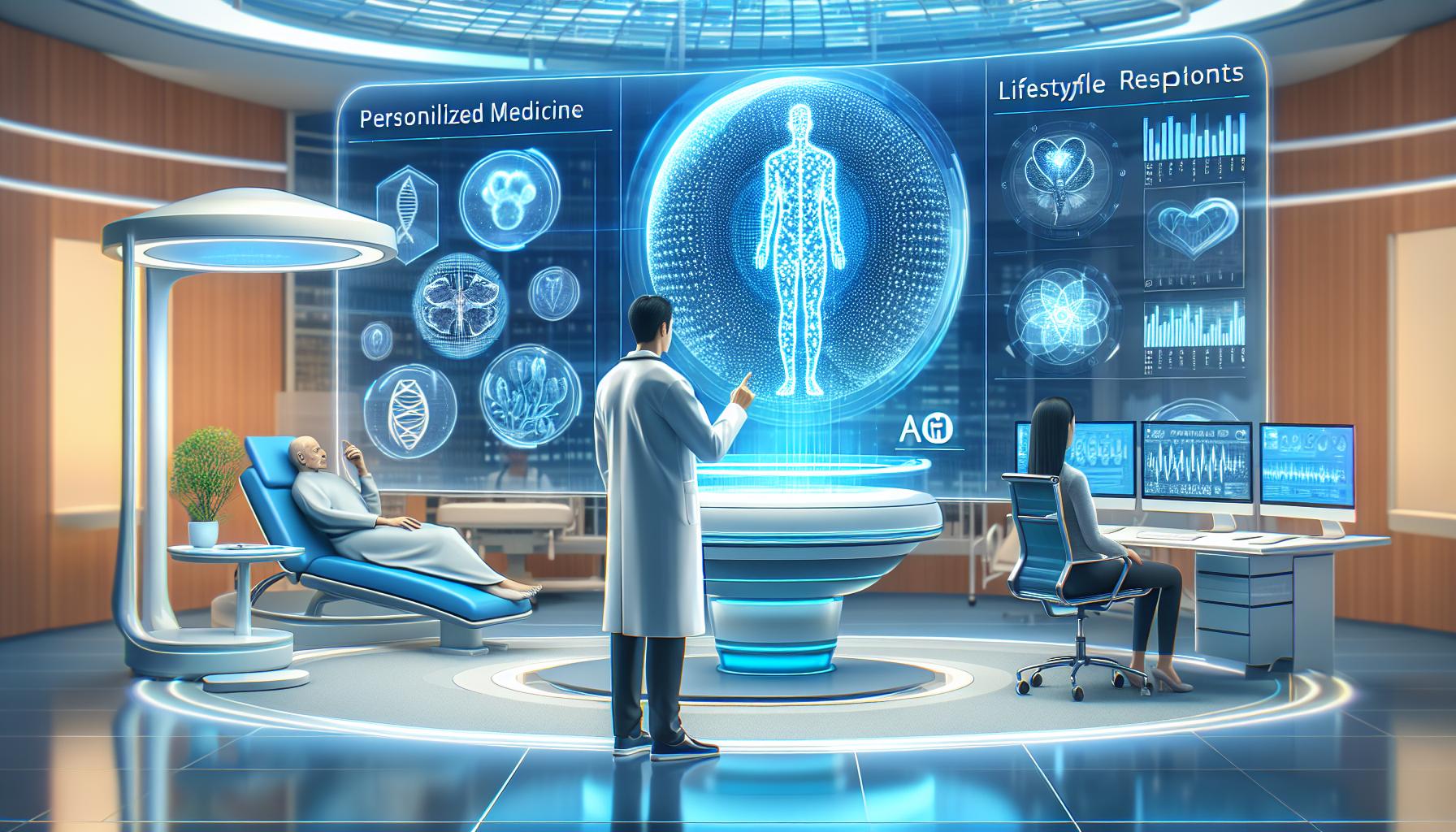Personalized Medicine: How AI is Tailoring Treatments to Individual Patients

Introduction
Personalized medicine is no longer a distant dream. With the advent of Artificial Intelligence (AI), healthcare is evolving to meet the specific needs of individual patients. AI technology is making it possible to create customized treatment plans based on a variety of factors, including genetic makeup, lifestyle, and personal medical history.
The Role of AI in Personalized Medicine
Artificial Intelligence has the capability to analyze vast amounts of data far more quickly and accurately than traditional methods. This enables healthcare providers to make informed decisions that are tailored to the individual. AI algorithms can sift through complex datasets, identifying patterns that may not be immediately apparent to human eyes.
Genetic Profiling and AI
Genomic data plays a crucial role in personalized medicine. AI can analyze a patient's genetic profile to predict how they will respond to specific medications. This is particularly valuable in treating conditions like cancer, where precise targeting can make all the difference. AI-driven genetic profiling allows for a more nuanced understanding of a patient's needs, leading to treatments that are both effective and less likely to cause adverse reactions.
Lifestyle Factors and Customized Treatments
Another significant advantage of AI in personalized medicine is its ability to factor in lifestyle choices. Whether it's diet, exercise, or even stress levels, AI can integrate this information to create a comprehensive treatment plan. By considering these variables, healthcare providers can offer more holistic and effective care.
AI and Predictive Analytics
Predictive analytics is another area where AI shines in the realm of personalized medicine. By analyzing historical data alongside real-time information, AI can predict how a patient might respond to a treatment even before it starts. This capability is invaluable for avoiding ineffective treatments and steering the patient towards therapies that are more likely to succeed.
Improving Patient Outcomes
The ultimate goal of personalized medicine is to improve patient outcomes, and AI is proving to be a powerful tool in achieving this. Personalized treatment plans not only increase the chances of success but also reduce the risk of complications. This leads to quicker recoveries and a better quality of life for patients.
Reducing Healthcare Costs
Beyond improving patient outcomes, AI-driven personalized medicine also has the potential to significantly reduce healthcare costs. By eliminating the trial-and-error approach commonly associated with traditional treatments, AI helps in delivering effective therapies right from the start. This efficiency translates into fewer doctor visits, less time spent in hospitals, and a reduction in overall healthcare expenses.
Challenges and Future Prospects
While the benefits are clear, the implementation of AI in personalized medicine is not without challenges. Data privacy and security remain significant concerns. Additionally, the healthcare industry needs to ensure that its workforce is adequately trained to leverage AI technology effectively. Despite these challenges, the future of personalized medicine looks promising as AI continues to evolve.
Conclusion
Artificial Intelligence is transforming the landscape of personalized medicine, offering unprecedented possibilities for tailored healthcare. By leveraging genetic profiles, lifestyle data, and predictive analytics, AI enables the creation of highly customized treatment plans. The result is improved patient outcomes, enhanced quality of life, and reduced healthcare costs. As technology continues to advance, the potential for AI in personalized medicine appears limitless, heralding a new era in healthcare.




